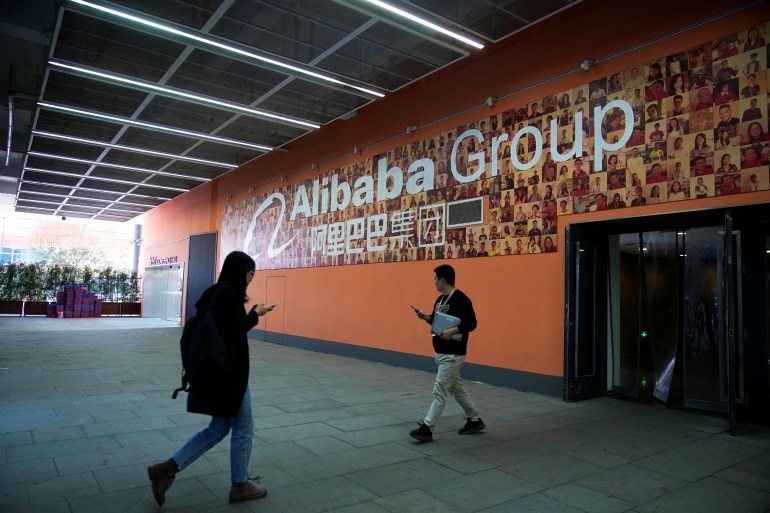China’s Singles Day posts record sales of $84.5bn

Alibaba Group Holding Ltd.’s Singles’ Day shopping festival posted record sales of 540.3 billion yuan ($84.5 billion), offering China’s largest e-commerce firm a much-needed boost following a year of heightened regulatory scrutiny.
Sales at the end of Nov. 11 eclipsed the 498.2 billion yuan official tally for 2020. The strong performance could ease concerns among investors grappling with a 30% slump in Alibaba’s shares this year, which has seen the company hit with a record $2.8 billion antitrust fine and report its first revenue miss in two years. Alibaba’s U.S.-traded shares closed 2.4% up on Thursday.
Keep reading
list of 4 itemsChina targets financial sector in new anti-corruption drive
China leaders ‘don’t understand variety of cultures’: Dalai Lama
China economy slows; officials say recovery ‘unstable and uneven’
Since its debut in 2009, Singles’ Day has come to dwarf the U.S. Black Friday and Cyber Monday sales in both intensity and size.
Alibaba has turned the event into one part showcase of commercialism and one part publicity blitz, featuring enormous discounts to encourage consumption as well as headline-grabbing appearances by celebrities such as Taylor Swift in previous years.
The 2020 edition roughly doubled sales from the prior year, as Alibaba added several days and additional services to the count.
But the festivities this time around have been more low key, with Alibaba seeking to turn the focus from sales growth to its efforts in sustainability and philanthropy — key pillars of President Xi Jinping’s drive to achieve “common prosperity.”
Beijing has over the past 12 months introduced new regulations to rein in the country’s largest private corporations in areas from e-commerce to fintech, data security and online content. In the run up to Singles’ Day this year, authorities called on domestic e-commerce platforms to curb marketing spam via text messages and refrain from unfair pricing.
“Following an unprecedented year of multiple headwinds, we are relieved to see Singles Day momentum settle with a new norm of moderated growth,” Citigroup analysts including Alicia Yap wrote after the results.

While its gala this year featured appearances by Sherlock actor Benedict Cumberbatch and Chinese pop star Jackson Yi, Alibaba broke with past years by not releasing gross merchandise value figures for the pre-sales period or the first minutes of Nov. 11 itself before the end of the event. Instead, Chief Marketing Officer Chris Tung told reporters the company is shifting its focus from pure GMV growth to “sustainable growth.”
“I believe the value that 11.11 offers is more than just the GMV figures,” Tung said at a press conference last month.
Alibaba has pledged to donate 1 yuan each time Singles’ Day shoppers buy certain items and post their purchases on social media. In a nod to another of Xi’s signature goals — to slash China’s carbon emissions — Alibaba’s platforms are also showcasing energy-efficient products during the shopping festival and its logistics network will help to recycle packaging.
Analysts have long relied on the sales figure to gauge the health of China’s economy as well as the country’s No. 1 e-commerce platform operator. In recent years, Alibaba has confronted fierce competition from rivals such as JD.com Inc. and Pinduoduo Inc. as well as live-streaming platforms run by the likes of ByteDance Ltd. after they also rolled out Singles’ Day promotions. China is also grappling with a new coronavirus outbreak that’s the broadest since the deadly pathogen first emerged in 2019, with government officials enacting increasingly aggressive measures that could derail economic activity.
Alibaba’s revenue lagged consensus expectations during the June quarter, its first miss since 2019. The company will release its September quarter results on Nov. 18, with analysts on average forecasting a 33% increase in sales.